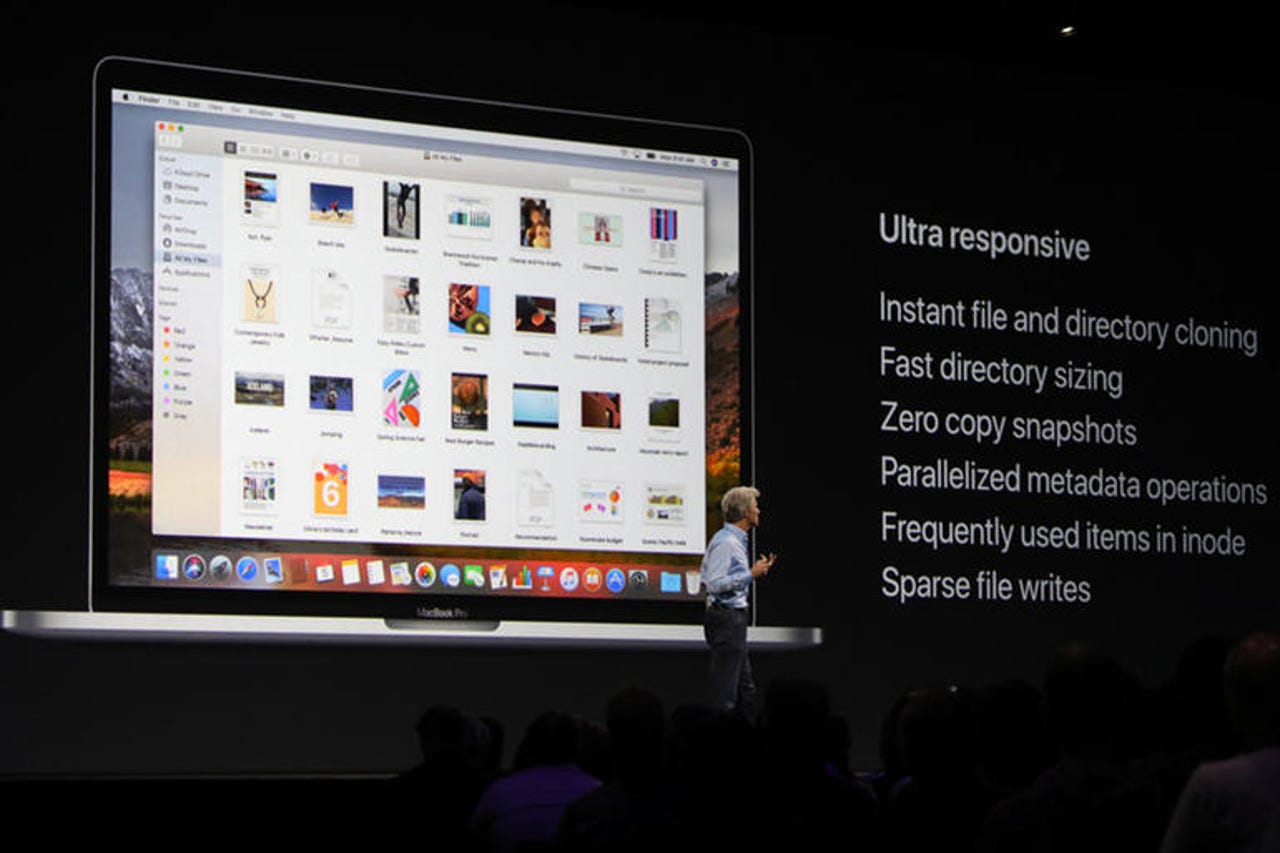APFS up close: What Mac users need to know about Apple's new file system


Last week's worldwide developers conference in San Jose included an update on Apple's new APFS file system. Here are the key takeaways for users.
APFS is running on hundreds of millions of iOS devices today. Apple tested the iOS conversion utility in iOS 10.0-2, doing a "dry run" during installs, to find and fix problems. As a result, the iOS conversion to APFS has been very smooth.
Conversion
For macOS, High Sierra automatically converts the system drive to APFS as part of the installation process. The process does not move your file data. It does copy and reformat file system metadata, but does not erase the old metadata until the rewritten metadata has checked out.
If you have more than one drive however, other drives must be upgraded manually, via Disk Utility. Select the volume to be upgraded, left click, and the contextual menu has a Convert to APFS option.
If you are using FileVault, which I recommend, macOS will automagically convert it to APFS without decrypting your data. Your passwords and recovery keys are preserved in the process.
Cloning
When a clone is created, only metadata is copied, which means that even very large files clone almost instantly. When the file is modified only the changed blocks are written to free space.
Snapshots
Snapshots are similar to clones, in that they preserve the state of the file system at a particular moment. APFS remembers all the references and metadata and, using Copy On Write (COW), only writes newly changed blocks after the snapshot. Snapshots use some capacity, but much less than a complete copy would.
Encryption
APFS offers deep support for encryption at the file and volume level. Cool feature: If you snapshot an unencrypted drive, and later encrypt it, the snapshot is encrypted as well.
Fusion drives
APFS will keep metadata on the SSD portion of the fusion drive, as well a write back cache and a read cache. This should make directory lookups really fast.
Time Machine
Not only is Time Machine supported under APFS, it is much improved. I stopped using Time Machine years ago because it slowed my machines down so much. But with APFS's snapshot capability, the TM software is much simpler and way faster.
One cool new feature: The old Time Machine couldn't back up files larger than about 20MB. With APFS there's no limit.
Intelligent defrag
SSDs don't need defragmentation, but hard drives do. APFS understands which files will give the biggest performance boost once defragged. It works in the background when the machine is idle, so defrag won't impact system performance.
The Storage Bits take
Although APFS doesn't check every 21st century feature box, it is still a massive and long overdue upgrade from HFS+. I'm cautiously optimistic that the conversion will go well.
Of the new details from the WWDC talk, I'm most pleased by the promise of a vastly improved Time Machine. Perhaps it will finally be the backup utility that I've wanted all along. While I've long used Superduper! and Carbon Copy Cloner, I'd rather that functionality be built into macOS.
But the promise of higher performance and better data integrity is enough for me. Let's hope developers come up with creative ways to use these new features.
Courteous comments welcome, of course. For more detail on APFS features and what they mean, check this out.